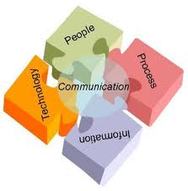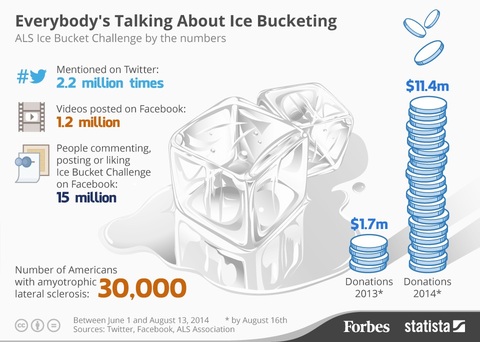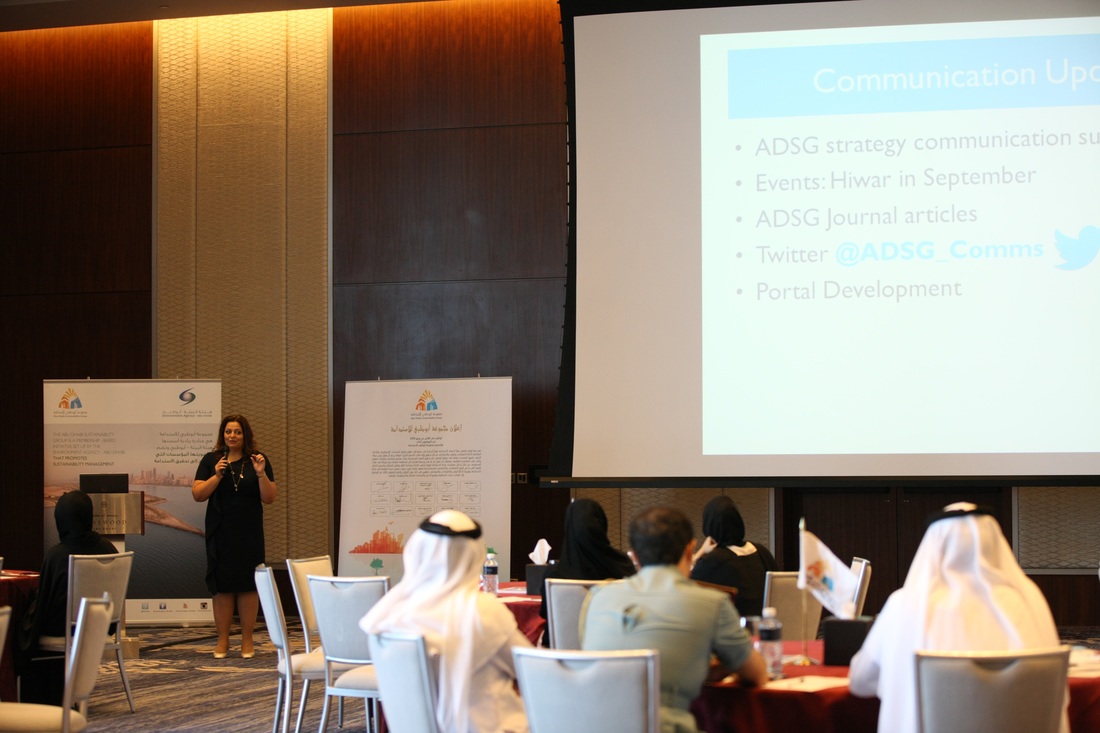|
Over the last few weeks we’ve seen videos of people screaming while getting soaked in the ice bucket challenge. From celebrities showering themselves in ice, to friends, family and strangers joining the trend.
People wanted to get their own version out there, nominating each other and spreading the word and raising funds for charities. it’s been a challenge that social media users couldn’t get enough of. As this stunt proved to be popular with all age groups, demographics around the world, it managed to raise awareness about Amyotrophic Lateral Sclerosis (ALS), a progressive disease of the nervous system, and significant donations flowed from far and wide. But how effective are such fads, from a longterm perspective? Making new behaviour ‘stick’ takes effort that allows the change to become part of the everyday norm, and sometimes, gimmicks like the ice bucket challenge can act as a catalyst for behaviour change, however showering in ice alone may not deliver the needs of charities for the longterm, while others argue that such campaigns may do more harm than good. The Giuardian ran an interesting article on the subject, you can click here to read more about it. Or for an interesting insight from an economist’s point of view, you can click here to see what they make of the challenge. In any case, it is vital to ensure that a viral campaign raises awareness about the disease, while also going beyond the one off donation into an ongoing commitment that converts this highly successful viral campaign into one that engenders positive, long-term behavioural change. Finally, I am pleased to share with you some great tips and ideas from Forbes on how other charities could benefit, a personal favourite is the ‘no-selfie challenge', click here to read the article.
2 Comments
Managing an organisation towards a sustainable future is an area that is often discussed and debated, however, there are certain basic skills and leadership qualities that business leaders require to have in order to future-proof their organisations.
These are the questions Sustainability to Action (STA) seeks to answer in our own business pursuits as well as within the sustainability programs with our clients. Broadly speaking, there are some insights that highlight the skills that can help in driving sustainability within an organisation and radiate to its stakeholders and community:
 About this image: Excellent campaign by the Spectator which ran during the Queen's Diamond Jubilee. The message was clear, it engaged the reader and articulated the offer that a free issue was availabe to readers. Management and strategy departments in organisations often spend a considerable amount of time developing core strategic plans and activities for their organisations. Similarly, careful thought and planning should take place around how best to engage on those plans and strategies, and how to ensure that everyone understands their role in how to make those plans come to fruition.
The benefits of looking ahead and how it demonstrates the value of the communications team in any organisation can be seen in examples where companies have invested in thorough communications planning. As a communications professional, you are faced with a wide range of content and material which need to go out to the business, consisting of a variety of information, from HR and legal communications to social engagements. Top tips To ensure your communications achieves it original goals, you can focus your messaging in a way the ensures the following: Answer the “so what?” Question When people read any messages or communications, we automatically wonder ”so what?” , make sure your communication resonates with your audience and clearly explains what this may mean for them or how it could impact them. Use metaphors When used correctly, they can make complicated or technical information more interesting and easier to understand. Find an object, item or experience your audience can relate to and link the communication metaphorically. It can also help readers to remember this communication in future. Telling a story We all like to tell a story of what happened when...and people like to read a story start to finish, not just read about a moment in time. Telling a story helps the person reading it to ‘experience’ it. What? When? How? As kids, we asked questions to learn about the world we live in; as adults, rather than being told, we prefer to find the answers for ourselves. So when communicating to your audience, try to make a statement that gets them engaged - ask them whether they agree with your statement thereby allowing them to get engaged with the information, to think about it and to arrive at a conclusion. Sustainability to Action can help you to achieve your communications goals, contact us today to see how we can help you.  I recently read an excellent blog post by Matthew Farrow, Executive Director Environmental Industries Commission, on Business Green’s website. In this blog Matthew goes on to list the ten things that he’s learned in his in my first decade working in the green policy world. As I read through the blog I realised that we all have lessons learned and insights that we can share to help us learn from each other and to help others along in their sustainability journey. I will start by sharing some of my ‘lessons learned’ and hope that you will join me and add some of your own in the comments below. If I get enough feedback, I will collate a follow up blog to make sure all readers can learn from this exercise. Three key learnings that I would like to share: Sustainability has a lexicon that acts as a barrier to entry, simple language and direct messages are significantly more effective and inclusive. We are all vested in a sustainable future. People often assume sustainability is a lofty ideal and businesses should focus on economic growth and development. Sustainability includes economic viability, and a successful business can only be successful in the longterm once it incorporates sustainability within its four walls. Managing an organisation’s supply chain can can help in managing sustainability effectively, allowing organisations to do this voluntarily is admirable and has led to interesting results. Sometime peer pressure and public opinion drive organisations to manage their supply chain more effectively, but it seems that regulations may be a more effective route. Please share your thoughts and responses! You can email me directly, or comment below. I look forward to engaging with you.  As more organisations adopt sustainability management practices, the topic of sustainability has risen on the corporate and organisational agenda globally. When sustainability as a concept is integrated within an organisation, this presents an opportunity to do things in a different way, including how communications is developed and implemented. And when starting to implement a sustainability framework, it is important to reflect on the fact that you are essentially embarking on change programme; a new way of working and thinking. Change management with an effective communications and engagement process is part and parcel of any successful sustainability initiative. Communication, which is based on engagement, means that people will understand messages more easily as they feel that they are being listened to, every step of the process. Sustainability communications, in the end, is all about turning high level strategies into manageable, understandable, knowledge bytes that support the delivery of tangible results. In this context, communications plays a pivotal role in integrating and embedding sustainable work practices. It’s well known that a sustainability communications strategy will identify communications objectives, right audiences, the key messages and channels of communication, such as traditional and digital. When developing your sustainability strategy, you should ensure that all sustainability messaging supports and complements your broader corporate communications. Part of effective communications is the ability to involve people rather than merely sending out emails and bulletins. Sustainability communications needs to create a sense of shared responsibility, where each individual plays a role. Developing a shared agenda, that is owned and driven by stakeholders and provides channels for two-way communication, enables work on community critical issues and supports an organisation’s license to grow. Through this ‘new’ approach of engagement and developing a shared agenda, sustainability offers a great opportunity to to positively impact your organisational culture, which in turn affects internal stakeholders and has impact on how you manage your relationships with external stakeholders. You will find that more often than not, sustainability practices work in tandem with people’s personal values. We all want to have a better, brighter future. A cleaner environment and cohesive communities, wherever we live. |
Categories
All
AuthorSandra Anani is passionate about sustainability, with over 19 years’ experience. She has dedicated her career to sustainable development and communications. Archives
November 2022
|



 RSS Feed
RSS Feed
